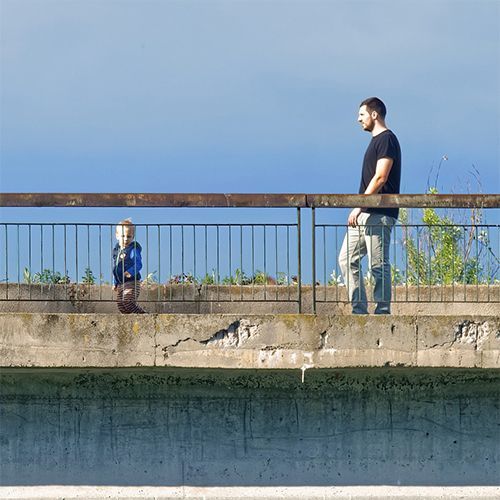
Child welfare is beginning to experience a transformational shift in approach and thinking – from a reactive or remedial stance to a proactive, preventative stance. There is a national movement currently to rethink child welfare by creating the conditions for strong, thriving families where children are free from harm.
Imagine a large river where people have fallen into the rushing waters and are at risk of drowning. Hundreds of people along the shore are frantically trying to rescue as many as possible. One individual leaves the rescue operation to run upstream. The rescuers plead with her to stay and not to abandon those in need; however, the woman replies, “I’m going upstream to find out why people are falling into the river.” She discovers a bridge crossing the river is damaged, and people are falling through a hole in the bridge. The hole in the bridge is subsequently fixed, thereby preventing harm to anyone else at risk of crossing the bridge and falling in the water.
Working upstream in child welfare represents a shift in the system’s traditional north star of rescuing abused and neglected children. Primary prevention envisions a system that not only addresses, but ultimately prevents, the conditions that potentially contribute to child maltreatment. From awareness to early intervention to enhancing protective factors through community involvement, a continuum of prevention approaches can strengthen families and mitigate negative outcomes.
Before joining Voce, I worked for years in the field of domestic and sexual violence. For decades, this field has successfully implemented violence prevention strategies, including working collaboratively with diverse stakeholders, connecting the root causes that create a culture where violence can propagate, and promoting healthy, respectful, nonviolent relationships. Resources have been dedicated to developing evidence-based policies, programs and practices that reduce violence and its health and social consequences. Child welfare has only recently taken a significant step towards embracing and committing to a prevention approach with the passage of the federal Family First Prevention Services Act of 2018, which reforms the federal child welfare financing streams to provide services to families who are at risk of entering the child welfare system.
Family First is an initial commitment needed to address the needs of families before there is a crisis, preventing children from experiencing the trauma of abuse and neglect. Adopting and investing in a prevention approach is to commit to sustainability and accountability to a family well-being system.
Primary prevention cannot be accomplished in isolation. As a change agent, Voce is cultivating cross-sector collaboration that fosters innovative approaches for building strong families and communities. We’re currently planning the Forum on Pennsylvania’s Children (FPaC), an event convening thought leaders from law enforcement, the faith community, mental health, education and child welfare who are committed to taking actionable steps forward on prevention efforts.
Social change begins with understanding that protecting children and strengthening families is everyone’s responsibility. Working together, we can “fix the hole in the bridge.” For more information about FPaC and other ways you can support Voce’s efforts, please contact us.

